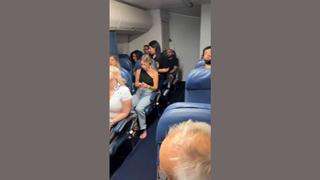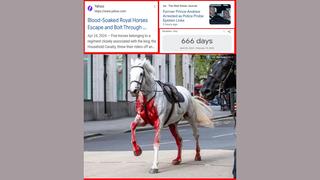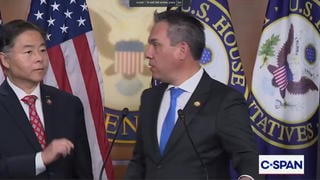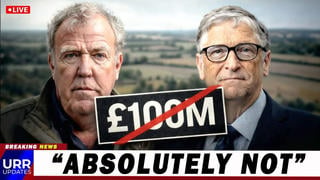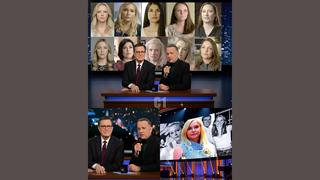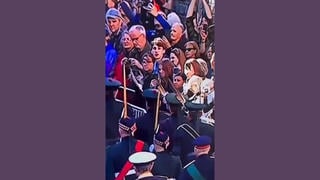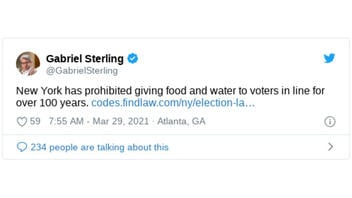
Do New York and Delaware prohibit giving food and water to voters in line? No, that's not true: In New York it is not illegal to provide refreshment to voters, as long as the value of the refreshment is less than $1, and the person or entity supplying the refreshment is not identified, according to New York state election law. Delaware law prohibits giving "compensation, inducement or reward" to voters, without specifying food or water to voters waiting in line, the way Georgia's law does.
The claim appeared in a tweet (archived here) published by Gabriel Sterling, who served as Georgia's voting system implementation manager for the 2020 elections, on March 29, 2021. Georgia recently passed a law making it illegal to give food and drinks to voters in line. Sterling's tweet read:
New York has prohibited giving food and water to voters in line for over 100 years.
This is what the post looked like on Twitter at the time of writing:
(Source: Twitter screenshot taken on Mon Mar 29 18:54:14 2021 UTC)
As the source for his claim, Sterling linked to the relevant part of New York election law. That section, 17-140, titled "Furnishing Money or Entertainment to Induce Attendance at Polls," can be read here and below (emphasis is ours):
Any person who directly or indirectly by himself or through any other person in connection with or in respect of any election during the hours of voting on a day of a general, special or primary election gives or provides, or causes to be given or provided, or shall pay, wholly or in part, for any meat, drink, tobacco, refreshment or provision to or for any person, other than persons who are official representatives of the board of elections or political parties and committees and persons who are engaged as watchers, party representatives or workers assisting the candidate, except any such meat, drink, tobacco, refreshment or provision having a retail value of less than one dollar, which is given or provided to any person in a polling place without any identification of the person or entity supplying such provisions, is guilty of a Class A misdemeanor.
The law is aimed at prohibiting bribery, but it carves out an exception, which we bolded.
The text of the law makes clear that it's not illegal to provide refreshment to voters, as long as the value of the refreshment is less than $1, and the person or entity supplying the refreshment is not identified.
The law only refers to people "in a polling place," leaving it open to interpretation whether it applies to voters waiting in lines outside. But it clearly allows providing food or drink with a value of "less than one dollar" as long as the provider remains unidentified.
According to the New York Civil Liberties Union, the law is not a thoroughly litigated statute, suggesting it's not regularly violated or enforced. The civil rights organization pointed to another section of New York election law that expressly prohibits electioneering "within the polling place, or in any public street, within a one hundred foot radial measured from the entrances designated by the inspectors of election, to such polling place or within such distance in any place in a public manner." In other words, electioneering is prohibited not just in polling places but outside, as well. Section 17-140 does not contain such specific language.
Lead Stories reached out to Jerry Goldfeder, a prominent election law attorney in New York, to ask about the law's wording. According to him, "in a polling place," does not encompass the lines outside.
We also reached out to the New York State Board of Elections. We will update this story, as appropriate, if we receive a response.
Sterling's tweet came on the heels of a new law in Georgia, which expressly prohibits the distribution of food and drinks to voters waiting in line. Critics contend that polling places in predominately Black neighborhoods are more likely to experience long wait times, meaning that the law will disproportionately impact Black and other minority voters.
Supporters of the law, like Sterling, have argued that it's not unlike laws in other parts of the country. He told PBS Newshour that the distribution of food and water creates a loophole where people may try to influence voters in line. Sterling said:
Well, the main thing is, it's been used as a work-around to get around that law.
And the irony of this, as we looked it up, this is actually the law in the president's home state of Delaware right now. So, this is not some new thing that's been brought out. This is pretty standard across the country to avoid those kind of loopholes where people can go and campaign and try to influence voters in the line.
And that's been the law in this state for decades. This was a work-around. People sort of abused it. It's hard to enforce for elections officials and sheriffs. Like I said, it's the law in the president's home state of Delaware. So I'm surprised that shock isn't being held for his own state legislature, who passed the same thing.
That's not true.
We looked at Delaware's election law, which does not specifically mention the distribution of food or drinks. The relevant section, like was the case for New York, deals with bribery. Section 3167 of the code, titled "Bribery at primary elections; penalty," states:
Whoever, either in or out of this State, receives or accepts, or offers to receive or accept, or pays, transfers or delivers, or offers, or promises to pay, transfer or deliver, or contributes or offers, or promises to contribute to another to be paid or used, any money, or other valuable thing as a compensation, inducement or reward for the giving or withholding or in any manner influencing the giving or withholding a vote at any primary election held for the purpose of selecting delegates or representatives to any political convention thereafter to be held for the purpose of selecting candidates for public office or for the purpose of selecting delegates to a national political convention thereafter to be held for the purpose of nominating candidates for the office of President and Vice President of the United States, shall be fined not less than $100 nor more than $5,000 or imprisoned not less than 1 month nor more than 3 years, or both.
Although one could make the argument that food and drinks could be interpreted as "compensation, inducement or reward," it's not correct to say that the Delaware law is the same as the one in Georgia.




